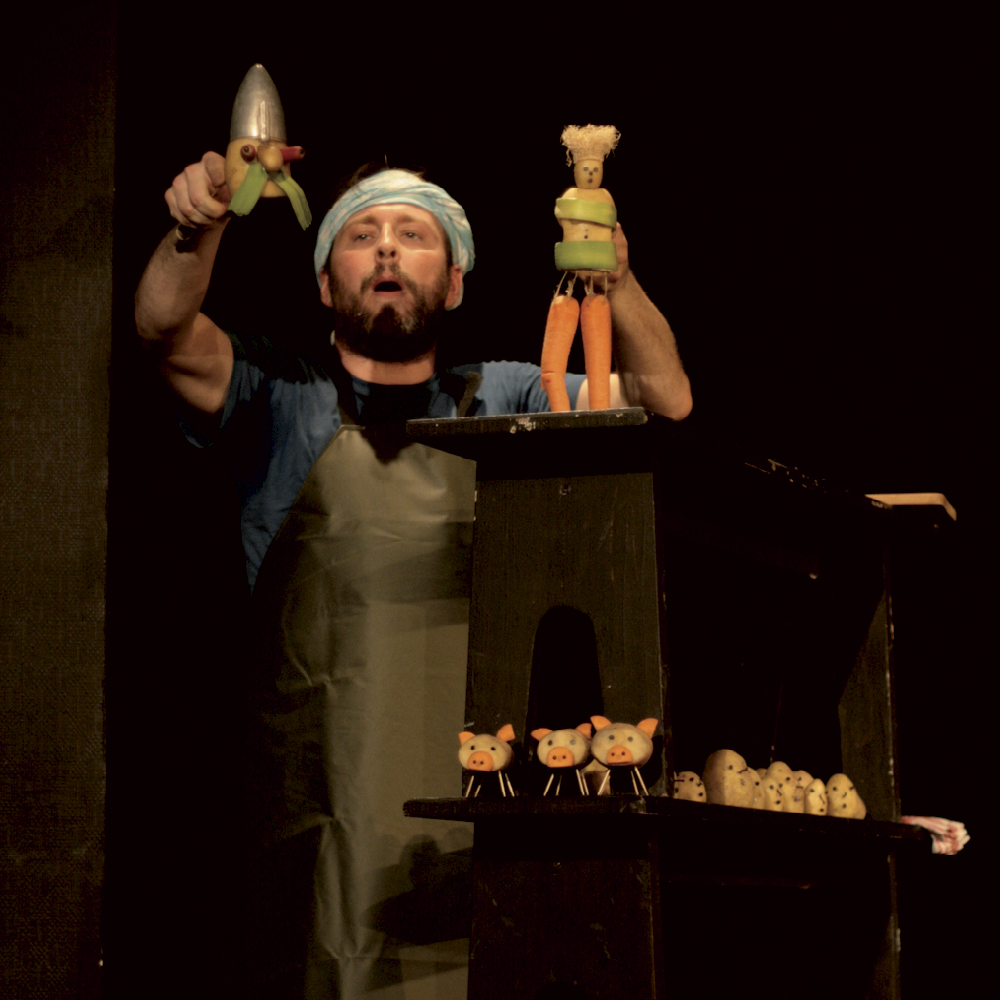Compagnie l’Eygurande :: France
Compagnie l’Eygurande makes transdisciplinary work around language sciences. We are currently working on pieces for children 18 months-5 years old as an artistic and cultural ’éveil’ or awakening. In our Polyphonies langagières (Linguistic Polyphonies) project we also explore the perception of sounds though bone conduction. Through this work we question the relationship between artist and spectator, frontality or immersion in a common space with the public and multi-sensory experiences. In 2020 we started a cycle where we approach the story through pictorial gesture and ’en live’ dramaturgy. The first stage was inspired by the world of Juan Miro and Alexandre Calder. For the second stage we are working on the bestiary by Viktor Brauner. However we are not a ’young audience’ company and we avoid artistic pigeonholing – our work is aimed at all audiences. In 2020 we also created a literary festival with Zulma publishers around their annual review Apulée.
Based at: La Cité du Verbe, 21210 Missery, Bourgogne / Théâtre du Coin des Mondes, Evry-Courcouronnes
Website: compagnie-eygurande.com
Contact: co-artistic directors Jean-Louis Mercuzot – jean-louis@eygurande.net & Isabella Keiser – i.keiser@compagnieleygurande.net

Artistic director Isabella Kesier on Compagnie l’Eygurande’s response to lockdown…
How was 2020-2021 for artists in France?
It was a very difficult period. The theatres and cultural centres closed for very long periods. Tours were initially postponed, then cancelled definitively during our third lockdown in spring 2021. There was also the impossibility of sharing the shows and of bringing the projects to reality.
How was Compagnie l’Eygurande affected?
There was a loss of energy due to a year and a half of stop-start of everything. Ups and downs, very mixed feelings: a welcome time to stop and step back, but also the feeling of a loss of meaning, absence of existence and worries about the future
What aid was there for you?
In France, the performing arts professions can benefit from our ’intermittence du spectacle’ system, which has allowed artists to receive a monthly allowance throughout the pandemic crisis. The government has extended these rights until December 31, 2021 without artists having to provide proof of the hours they have worked since March 2020. The government has also implemented a partial unemployment system, allowing artists to be paid in spite of cancellations. Some grants have been paid without requiring compensation or completion of work details. In our particular experience, we can say that we have been treated very well by our institutions. The difficulties will be felt in the seasons to come!
Did it release the idea of art or confine it?
I would say that we didn’t need this crisis to be creative and imaginative. There is something indecent in ordering artists to ‘reinvent themselves’! Especially at the level of the live performance which needs be done through encounter. While we can always question our work and the aesthetic forms we give it, there are essential fundamentals in theatre that are linked to physical encounter and the uniqueness of performance. Lockdown has effectively prevented this. Putting theatre through Facebook Live can be one way of working, looking for different ways of expression and communication, but it will never replace the ‘ceremony of theatre’ (by which I mean that poeple find themselves in the same time at the same space to live a unique, ephemeral common experience). We also know this from neuroscience, which shows how in live encounters something else happens than you find on a screen. Being forced to bring creative work to life through social networks reinforces cultural pigeonholing and the danger of becoming a consumer product of entertaiment like any other.
How did you resolve the problems you faced in doing work during lockdown?
We have public readings and created podcasts that are accessible on our site compagnie-eygurande.com. Mainly through our website and some virtual meetings. The public has shown us their sympathy throughout and expressed the need to find us as soon as possible online. Since studio work was possible, we were able to continue to exercise part of our profession as performers. Voice and sound have seemed very stimulating to us during this ‘lost’ period. After the second lockdown, we had the right to rehearse but our two theatres were closed to the public. In autumn 2020 we were allowed to play in nurseries and daycare centres. We have adapted our work to be mobile and able to perform in non-theatre spaces. But again, we have been creating forms ‘outside the walls’ for many years and have always sought to bring the theatre to life in atypical spaces or contexts.
